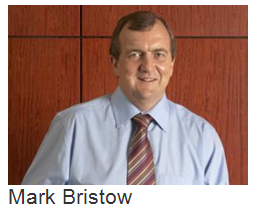Opportunities but also challenges for Africa’s gold-producing countries

The looming undersupply of gold will create opportunities for mineral-rich African countries but they will have to compete aggressively for shrinking exploration dollars against each other as well as the rest of the world’s gold-producing regions, says Randgold Resources chief executive Mark Bristow.
Speaking at the IPAD Democratic Republic of Congo Mining and Infrastructure Indaba today, Bristow said during the gold price boom the mining industry as well as its host governments had focused on short term gain instead of sustainable profitability. The global industry’s reserve base had consequently diminished in quantity as well as quality and production would inevitably continue to decline. With exploration budgets also decreasing, mining companies would now be even more selective than before about where they will invest their money.
Bristow said that while the DRC was endowed with abundant mineral wealth, it had performed poorly relative to its African peers in attracting the investment that could enable it to build its fledgling gold mining industry into a substantial and sustainably profitable sector of its economy. Among the reasons for this was uncertainty about the outcome of a DRC government commission’s current review of the country’s mining code.
“The question all concerned must ask themselves is this: Will any changes to the existing code promote the DRC’s international competitiveness, or will they damage its already fragile position in the investment market? In other words, will they build an industry capable of delivering more Kibalis or strangle it in its cradle?” Bristow said.
“The commission’s initial work created a real concern that the country was heading down the wrong road. Since then, however, a dialogue between the commission and the mining industry has evolved a position which is starting to compare with those of more attractive emerging country jurisdictions. The main item still being debated at this stage is the stability clause. Given the long term nature of any mining investment, the government’s pledge to honour its side of the commitment is obviously essential.”
He noted that Côte d’Ivoire’s recently revised mining code was a model of its kind because the review process that was followed had been inclusive and consultative. This approach delivered a win-win outcome which would make Côte d’Ivoire the go-to destination for mining investment in West Africa.
“The Côte d’Ivoire process has again highlighted the crucial importance of Randgold Resources’ partnership philosophy in building sustainable mining businesses in Africa for the benefit of all stakeholders. We believe that just as mining companies are custodians of their investors’ funds, so governments are custodians of their countries’ natural resources. Their objectives and deliverables are closely correlated, and both have an obligation to see that these resources are developed in a way that will build sustainably profitable mining industries that will not only create and deliver value in their own right but will serve as the engines that drive general long term economic growth,” he said.
{{ commodity.name }}
{{ post.title }}
{{ post.date }}




Comments